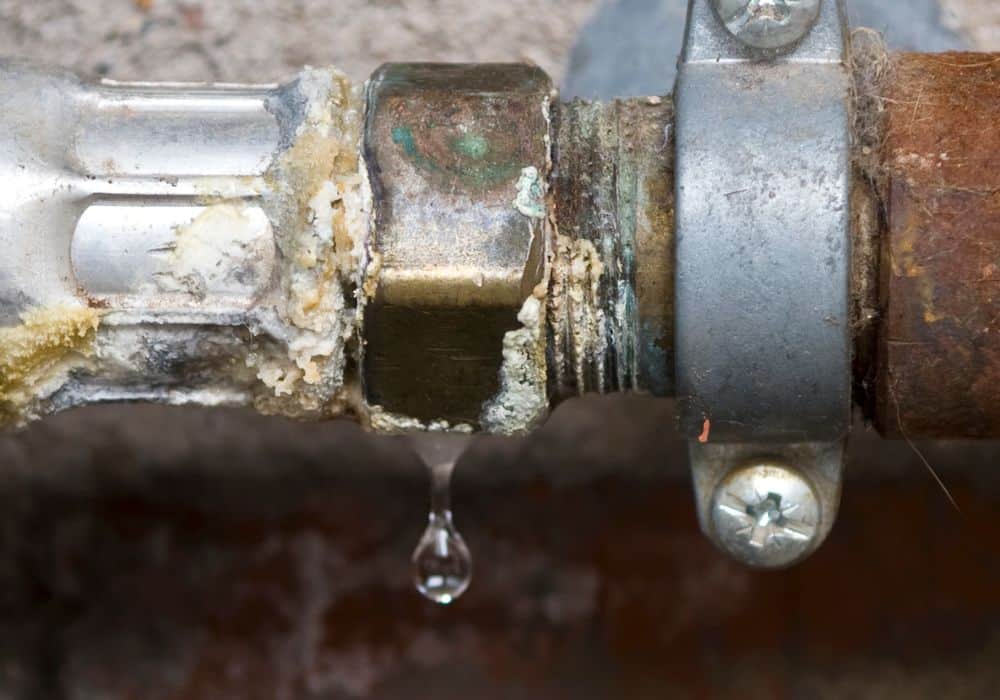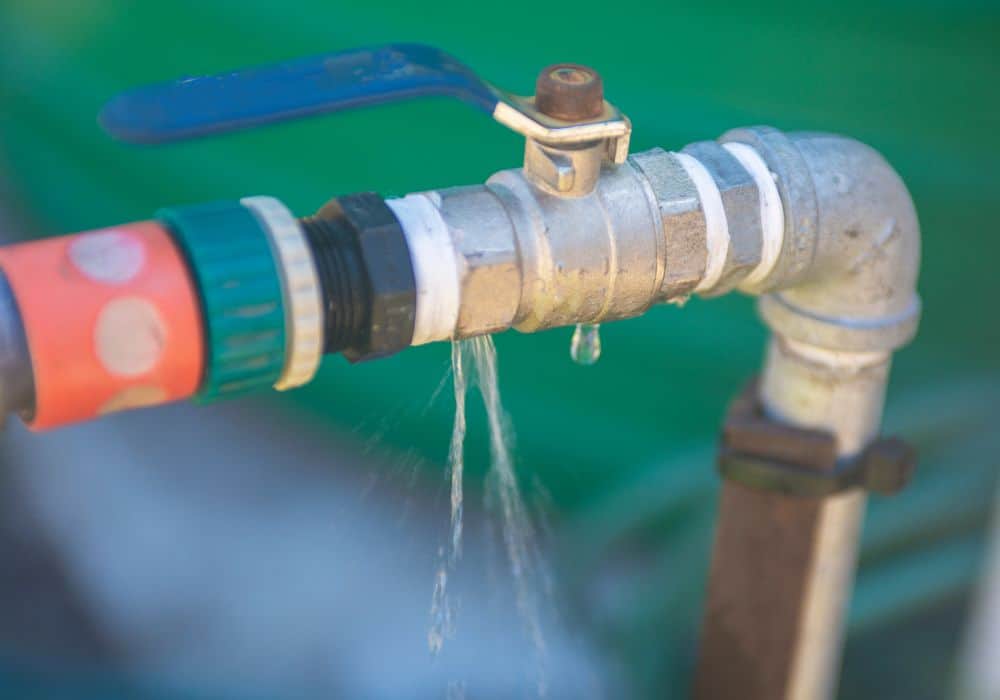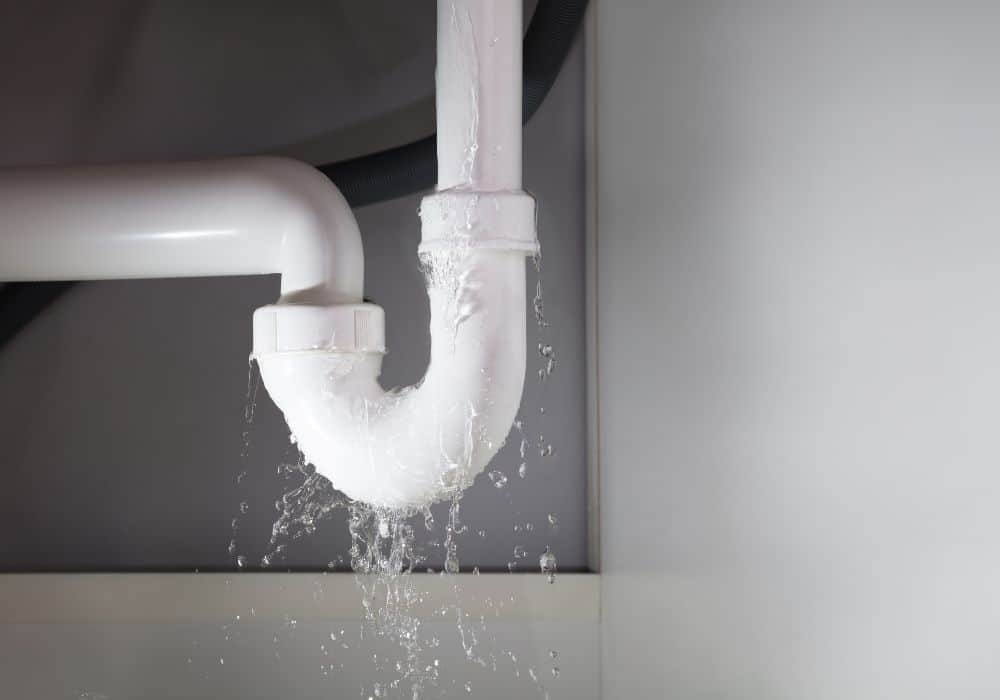Do you have a plumbing leak in your house that you cannot find? Here is a simple guide that will teach you how to detect a leak and potentially rid you of your troubles.
Plumbing leaks, in general, are very dangerous, and even a small leak can cause damage to your ceiling, flooring, carpet, and hardwood. In addition, it can result in mold, which is a health hazard.
Water leakage can damage the furnishings and structure of your house, and you already know how costly it is to repair or replace them. So before we dive into the guide on finding the leak, let’s first check out the signs of a leak.
How Can I Tell If I Have a Leak Pipe?

In most cases, it is pretty evident if you have a leak because you can notice water dripping down from the walls or accumulation of water in some unusual places. However, that is only always the case.
Sometimes you can have a small leak that, over time, can become a massive problem because you cannot detect it or you are not even aware of it.
This usually happens with underground leaks, which are really hard to find; they can quickly become compromised due to dirt and contaminants entering them. So here are some common signs of water leakage.
1. Wet Drywall
If you notice that your drywall is wet, you probably have a leak unless you accidentally spilled something on the wall. This is usually caused by water damage and can be expensive to repair.
You will most likely have to replace the drywall; you should replace it when you notice the wetness before it leads to mold growth.
2. Stains and Wet Spots
Seeing stains and discoloration on your ceiling, walls, and floor is definitely a sign that water is leaking. The stains are usually dark brown and resemble the usual pattern of a water stain. Also, if you see some wet spots, which should be dry, that is another clue.
Peeling paint or wallpaper is a common sign of a leak, so watch out for that.
3. Visible Mold and Cracks In Your Foundation
The moment you notice mold in your house, that is your sign to call a professional and deal with it before it spreads. Mold can also be a sign of excess moisture and persistent humidity in your house, but we suggest you check it out immediately. It is better to be safe than sorry!
Besides these signs, some others are not visible to our eyes. For example, if you hear water dripping somewhere, even though you know that you have shut every faucet, that is a clear sign of a water leak.
Also, you might experience some strange odor, like an earthy or musty smell.
How to Find a Leak Pipe?

1. Watch for the Spike in Your Water Bill
We all generally know how much water we use on a monthly basis, thanks to our water bill. If you notice that your monthly water usage has spiked and you have no new members in the house, or you know that you could not have used that much water, you have a leak.
2. Check the Water Meter
Every house has a water meter that tracks the flow rate or, in simple words, how many gallons of water flow per minute. If you suspect that you might have a leak somewhere, here is what you need to do
- Go to your water meter outside your house and write down the number you see on the meter. Next to the meter is a micrometer, a small triangle that moves when the water is running in the house.
- Record the last numbers you see on the meter, and then shut the water off to your home to make sure there is no running water. The shut-off valve is usually located outside, in your garage, or maybe in the basement.
- After you have shut it off, check whether the micrometer is moving; if it is moving, you have a leak. You can also compare the numbers on the meter (after you have waited an hour at least) before you shut off the valve. If the numbers are different, then you have a leak.
3. Look for Patches of Green Grass
Sometimes an underground leak can be noticed by inspecting your lawn or yard. For example, do you have an area where your grass is much greener and grows faster than in other areas of your property? If the answer is yes, it might indicate that you have a leak somewhere near.
4. Check out Your Appliances and Fixtures
If your doubts about a potential leak have been confirmed, your next step is to check out the lower kitchen cabinets, bathroom sink, and laundry to see if there are some puddles of water.
You also want to check out your washing machine, dishwasher, shower, toilet, every appliance, or simply any appliance or fixture that uses water. If you notice leaks or water under or beside any of the mentioned appliances and fixtures, turn off the valve for that appliance.
5. Test Your Toilet

If you have already done the previous tests and still need help finding the leak try testing your toilet because it is the main spot for inside leaks. For this test, you will need a food dye. If you suspect a problem with your toilet, put some coloring in the water and wait a couple of minutes.
If the coloring seeps into the toilet bowl and your flapper is not creating a proper seal, it may just take replacing the flapper to fix your leak. In case you do not have a food dye, you can do this test using a pencil.
Mark the water level on the toilet and then turn off the toilet’s water supply. If the water has gone down after a few minutes, you have a faulty flapper because water is escaping and it should not.
6. Pressure Gauge Test
You can also run a pressure gauge test to see whether water leaks. The gauge should be attached to a hose bib on the side of your house. Then, shut off the water to the house to make it a closed system.
If the gauge starts to drip slowly, that means the water is leaving the system. On the other hand, if the gauge stays the same for half an hour or longer, the water remains in the system. The gauge/indicator will stay the same if there are no leaks.
7. How Can I Tell If I Have a Slab leak?
A slab leak is a type of leak that happens under the foundation of your house or under the concrete slab that your home rests on; these can be hard for regular homeowners, but there is a test you can do to verify if you have a leak.
If you see water coming out from underneath the slab on the outside of your house, you have a water leak underground -water is probably leaking from a pipe under the slab and finding its way out.
Sometimes, water can come out from the cracks underneath walls. For example, if you are close to the sink, the water might not be coming out of the pipe directly but from the cracks of the tiles. This indicates that the leak is under the slab and is surfacing through the cracks.
You can also tell if you have a slab leak if your tiles in the kitchen or bathroom suddenly get warm. This is because the heat of the leaking water under the slob heats the concrete, which then heats the tiles or floor.
What to Do When I Find the Leak?
If you are not a plumber, we suggest you hire a professional to fix your leaking pipe or pipes because that is not a DIY project. You can seriously damage your plumbing or irrigation system if you try to do it yourself.
Also, remember that not every leak you encounter in the house is related to plumbing; sometimes, you can have a faulty roof or a window.
Should I Get A Leak Detector?
To avoid doing numerous tests and doubting whether you have a leak, we suggest you buy a leak detector because some fixtures leak more frequently than others. In addition, investing in a good leak detector can save you a lot of money.
Most leak detectors offer immediate notification and are accurate up to %90. For example, Phyn Plus Smart Water Assistant will not only notify you of the leak, but it will also shut the water off automatically.
This allows you to prevent potential damage and clue you when to call a professional.
Conclusion
Nobody likes to deal with leaks in their house. They are messy, cause a lot of damage, and are generally very expensive to fix. If you think you have a leak, try some of these tests to confirm it, and then call a professional.
We urge you to do it immediately if you have time and money because prolonged leakage will only exacerbate the existing damages, and then you will have to deal with mold, wet floors, or wet walls.
